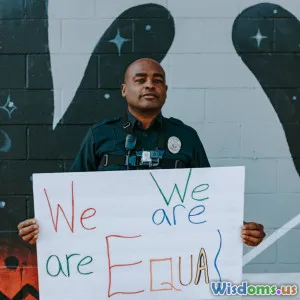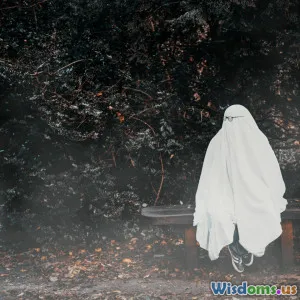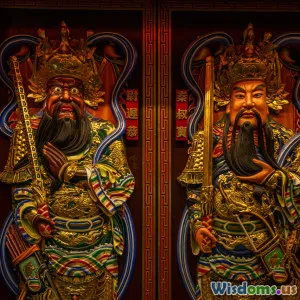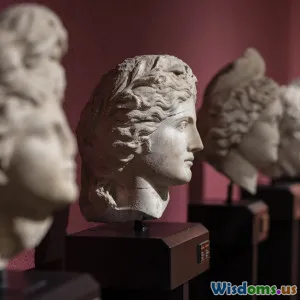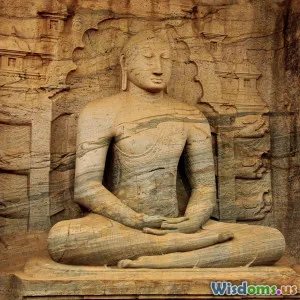
From Folklore to Film: Myths in Popular Culture
7 min read Explore how myths evolved from ancient folklore into modern films shaping popular culture. (0 Reviews)
From Folklore to Film: Myths in Popular Culture
Introduction
Myths and legends have been a fundamental part of human storytelling for millennia, serving as vehicles for cultural values, spiritual beliefs, and moral lessons. These ancient tales—rooted in folklore—continue to captivate modern audiences, largely due to their timeless themes and archetypal characters. Over time, myths have transcended oral traditions and manuscripts, evolving into a powerful influence on contemporary popular culture, especially cinema. This article explores the fascinating transformation of myths from their folkloric origins into blockbuster films, revealing how they continue to shape our collective imagination.
The Roots of Myth: Folklore as Cultural Foundation
Before myths graced the silver screen, they were woven into the oral traditions and folklore of communities worldwide. Folklore is the bedrock of mythology: anonymous stories passed down through generations, shaped by cultural context and societal needs.
Examples of Foundational Folklore
-
Greek Mythology: Tales of gods like Zeus, Hera, and heroes such as Hercules originated from ancient Greek oral storytelling. These stories explained natural phenomena, moral codes, and human behavior.
-
Norse Legends: The dramatic sagas of gods like Odin and Thor explored themes of fate, bravery, and apocalypse, laying the foundation for Northern European storytelling.
-
Indigenous Myths: Native American, African, and Polynesian myths incorporate creation stories, animal spirits, and moral teachings unique to their cultures.
Folklore's flexibility allowed myths to adapt and adopt new meanings over the centuries. With the advent of written records, these ancient stories expanded their reach and complexity.
The Transition to Literature and Visual Arts
As literacy spread and artistic expressions flourished, myths moved from oral narratives into manuscript and artworks. The Medieval and Renaissance periods saw a resurgence of interest in classical myths, influencing painting, literature, and theater.
William Shakespeare’s plays—like A Midsummer Night’s Dream—blend folklore with mythology, illustrating how these stories could entertain and instruct. Meanwhile, painters like Botticelli reinterpreted myths such as the birth of Venus, cementing these tales in Western cultural consciousness.
Myths in Modern Cinema: A Transformation
With technological innovation, myths found a new dimension in motion pictures, where visual effects brought gods, monsters, and heroes to vivid life. Since the early 20th century, filmmakers have drawn upon mythology to craft stories that resonate deeply with universal human experiences.
Iconic Film Adaptations of Myths
-
“Clash of the Titans” (1981 & 2010): Drawing directly from Greek myths, this film introduced audiences to the adventures of Perseus and mythological creatures like Medusa and the Kraken.
-
“The Lord of the Rings” Trilogy (2001-2003): Though fictional, J.R.R. Tolkien’s legends were heavily inspired by Norse and Anglo-Saxon myths, creating a modern mythos of its own.
-
Disney’s “Hercules” (1997): A family-friendly reinterpretation of the Greek hero's myth, blending humor, music, and adventure.
These films helped embed myths into global popular culture, attracting new generations while preserving the core themes and archetypes.
Why Myths Engage Movie Audiences
- Timeless Themes: Good vs. evil, heroism, love, and sacrifice are universal and evergreen.
- Archetypal Characters: Heroes, mentors, tricksters, and villains offer recognizable emotional beats.
- Spectacular Visuals: Myths allow boundless creative freedom, inspiring exotic settings and fantastical creatures.
Modern blockbusters like Marvel’s superhero films also rely on mythic structures—many characters are re-imagined gods, demi-gods, or wield mythical weapons—underscoring mythology’s enduring relevance.
The Cultural Impact of Myth-Based Films
Beyond entertainment, myth-inspired films influence culture and societal understanding in profound ways.
Reviving Heritage and Identity
For cultures worldwide, myth-themed movies foster pride and awareness of their heritage. The Black Panther film, while not a mythology adaptation per se, draws heavily on Afrofuturism, reimagining African myths in a modern context and empowering viewers globally.
Educational Insights
Film adaptations often spark interest in original myths, encouraging audiences to explore ancient stories and history. This enhances cultural literacy and cross-cultural dialogue.
Myth as Social Commentary
Modern retellings tweak myths to address contemporary issues such as gender roles, environmentalism, and morality. For example, films like Wonder Woman reinterpret mythological heroines through a feminist lens.
Conclusion: Myths as Endless Stories
From the firesides of ancient civilizations to the multiplex theaters of today, myths endure because they speak to fundamental aspects of the human experience. Their transformation from folklore to film exemplifies storytelling’s power to adapt and thrive, reflecting our evolving values while connecting us to timeless truths.
As technology progresses and global storytelling intermingles, we can expect myths to continue evolving, inspiring creators and audiences worldwide. Recognizing the threads that link folklore with popular culture enriches our appreciation of both history and the stories we cherish today.
Whether a scholar, cinephile, or casual viewer, understanding the journey of myths from ancient tales to cinematic spectacle provides valuable insight into how stories shape who we are.
Rate the Post
User Reviews
Popular Posts










